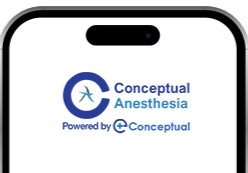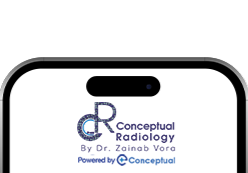
Estimated reading time: 4 minutes
In India, especially for medical graduates in India, after completing their MBBS, the next step is to pursue a specialization, which includes choosing between postgraduate options like MD, MS, or DNB exam. Among these, the Diplomate of National Board (DNB) examination is considered one of the most acknowledged pathways to achieve your postgraduate specialization. So, if you are a medical aspirant who is aiming to understand this way thoroughly, this blog will guide you step by step.
What is the DNB Exam?
The Diplomate of National Board (DNB) exam is basically the postgraduate medical examination, which is conducted by the National Board of Examinations (NBE), India. It is equivalent to MD/MS degrees awarded by Indian universities, but is awarded after training in accredited hospitals under the NBE system.
The DNB examination was accepted to maintain consistency in postgraduate medical education across the country and ensure high standards of clinical training.
- Full form: Diplomate of the National Board
- It is conducted by: National Board of Examinations (NBE)
- Eligibility: MBBS graduates who have completed their process of completing their internship.
- Mode: it is available in both written (theory) and practical called as (clinical) examinations.
You know that the DNB exam is available in multiple specialties, which include Medicine, Surgery, Pediatrics, Radiology, Anesthesia, Orthopedics, Obstetrics & Gynecology, and many more.
Types of DNB Programs
The DNB programs are mainly classified two types:
- DNB Broad Specialty:
- The Duration is 3 years
- Eligibility: only those are eligible who have completed their MBBS internship
- Focus: Major clinical specialty such as General Medicine, General Surgery, Pediatrics, etc.
- The Duration is 3 years
- DNB Super-Specialty (SS Preparation):
- The Duration is 3 years
- Eligibility: Only for those who have done their postgraduate in (MD/MS) or any relevant field
- Focus: the focus is on super-specialty training in specific areas like Cardiology, Gastroenterology, Neurosurgery, etc.
- The Duration is 3 years
Overall, there is the DNB Post-Diploma, which allows residents who have completed their diploma in a specialty to pursue DNB preparation in the same field.
Eligibility Criteria for the DNB Exam
Before registering for the DNB entrance exam, residents must meet the relevant eligibility criteria, which include:
- Educational Qualification: They should have their MBBS degree from a recognized medical college in India or a corresponding recognized degree.
- Internship Completion: They have their certification of completion of a one-year internship.
- Registration: Residents must have their valid registration who have Medical Council of India (MCI) or a state medical council. Temporary registration is also acceptable for candidates still completing their internship.
- Age Limit: There is generally no upper age limit, but residents should confirm the latest NBE notification regularly.
Structure of the DNB Exam
The DNB examination is divided into two main parts:
- Theory Examination:
- In the theory exam, there are multiple-choice questions (MCQs) that are based on clinical and theoretical knowledge.
- The coverage includes all features of the chosen specialty.
- In the theory exam, there are multiple-choice questions (MCQs) that are based on clinical and theoretical knowledge.
- Practical/Clinical Examination:
- In the practical exam, they have an assessment of hands-on clinical skills.
- Candidates are assessed on case presentations, procedural skills, and viva voce, which is an oral examination.
- In the practical exam, they have an assessment of hands-on clinical skills.
Generally, a minimum of 50% in both theory and practice is required to pass the criteria.
Benefits of Pursuing DNB
The DNB exam offers several advantages for medical graduates:
- Recognition: DNB qualification is identical to MD/MS by the Government of India and many international medical institutions.
- High Standards: The training occurs in recognized hospitals along with structured rotations, and make sure about robust clinical exposure.
- Wide Opportunities: Medicine residents can apply for senior residency as well, in which they can be in teaching positions and further super-specialty training.
- Flexibility: Residents who are in medicine can choose from multiple hospitals across India, while providing options in urban and rural settings.
Documents Required for DNB Registration
While registering for the DNB entrance exam, candidates need to submit these relevant documents, which are:
- They have an MBBS degree or a provisional certificate, along with an Internship completion certificate
- Medical council registration, which can be (provisional or permanent)
- Passport-size photograph of you.
- Signature and left thumb impression are necessary.
- Relevant category certificates (OBC, SC/ST, PWD, etc.) if applicable
Please make sure that all documents are scanned in JPG/PDF format as per the given notification of NBE. Conceptual Medicine often provides detailed guidance on document preparation and uploading to avoid errors.
Conclusion
The DNB exam is a reputable and highly respected path in the whole medical specialization in India. It offers profound training, meticulous assessment, and extensive recognition in India and abroad as well. Whether you aim to pursue a broad specialty or a super-speciality, understanding all the registration process, eligibility, exam structure, and preparation strategy is the most important source for your success.
For candidates looking for guidance, Conceptual Medicine provides expert guidance, handpicked study materials, and exam-oriented strategies to help you excel in the DNB exam.










